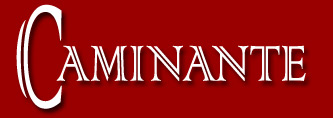
[widgets_on_pages id=”Flags_pro_CAMINANTE”]CAMINANTE, the Spanish word for wanderer is a classical theme in music as well in literature. This wanderer is the guide that leads the audience through music and poems of Spanish and Latin American origin. The poets Federico García Lorca and Antonio Machado and the Composer JoaquÍn Rodrigo are on the centre of which the program develops.
García Lorca, a gifted pianist and encouraged by his friend of the famous composer Manuel de Falla, collected and edited ancient Spanish folksongs that would be published as the “Canciones Antiguas Españolas”. Both friends shared the enthusiasm for the authentic music of the Spanish gypsies and were of course inspired by them in their creations. Together they founded in 1922 a yearly reoccurring flamenco competition and festival, that still runs, named as “Cante Jondo” (deep singing). Obviously all this engagement and the fact that Federico García Lorca was a poet, had an influence on some of the verses of the “Canciones Antiguas Españolas”. Also part of CAMINANTE are the impressionist songs by the Spanish composer JoaquÍn Rodrigo on poems of Antonio Machado in song cycle “Con Aantonio Machado”. The returning theme in this cycle is the everlasting longing to a reunion with a lost beloved.
The instrumental part of CAMINANTE leads the listener to Ibero-America in the form of Instrumental pieces by Astor Piazzolla and Manuel de Falla.
CAMINANTE has been recorded for a CD release at the Belgium city of Gent. It includes five of the “Canciones Españolas Antiguas” by Lorca and the complete song cycle “Con Antonio Machado”. Musicians collaborating on this CD are María Sobrino on piano, Lander Echebarria on Violin and Mirjam Wesselink as soprano, who arranged the Lorca songs for this setting of musicians.
- “Cinco Canciones Españolas Antiguas” by Federico García Lorca for voice, violin and piano.
- The songcycle “Con Antonio Machado” by Joaquín Rodrigo for voice and piano.
- “Cuatro Madrigales Amatorios” for voice and piano by Joaquín Rodrigo.
- “Cinco Canciones Populares Argentinas” for voice and piano by Alberto Ginastera.
- “Seis Canciones Populares” for violin and piano by Manuel De Falla.
- “Danza Española nº 1” from “La Vida Breve” by Manuel De Falla for violin and piano.
- “Le Grand Tango” by Astor Piazzolla for violin and piano.

